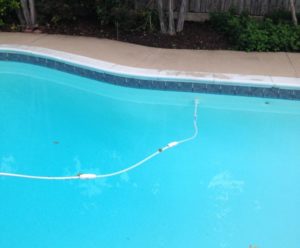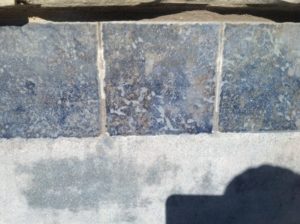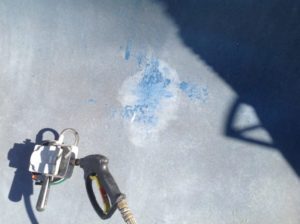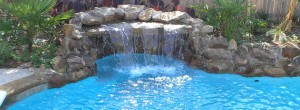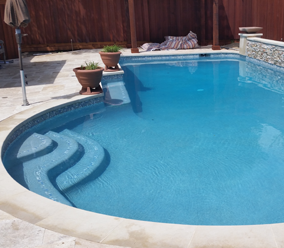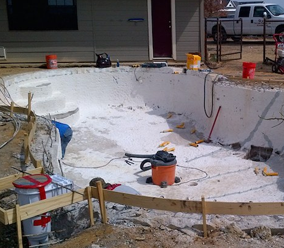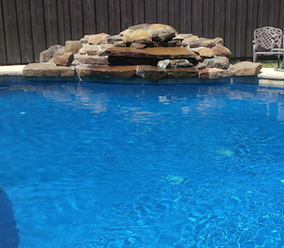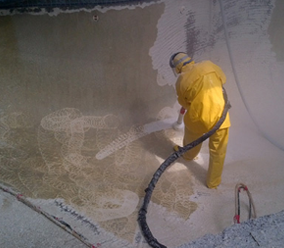Pool cracks develop for several reasons, such as:
- Inadequate bearing of the soils or soil related issues. Pools are built all of the time without anyone even considering the soil in which the pool is built on. Consider the weight of a diving pool. A diving pool can hold +/- 30,000 gallons of water, with the water alone weighing +/- 240,000 lbs. When you consider all of the construction material and the water, a diving pool can weigh in excess of 450,000 lbs. The reactive soils in North TX assure most pools will be built on soil that is not suitable for the pools weight unless the soil is properly prepared or construction efforts are in place to deal with the soil issues.
- Inadequate tensile strength, and/or lack of, or improper placement of reinforcing steel. The rebar installed in older pools varies on its placement. I have seen rebar installed in larger than 10”x10” on center grid patterns which is bad. 8”x8” on center grid pattern is standard in today’s pools.
- Inadequate compressive values of the gunite. Gunite application can be great and perfect for pool construction, as long as all rebound and trimmings are thrown out of the pool during construction. The reality of that is that the total cost would increase if that were done. So most companies do not throw any of that dead material out. It winds up in the pool floor, steps, and benches of the pool and spa. There is no compressive strength to rebound and trimmings. The areas of the pool that have rebound in them have no compressive strength and the pool structure is weak in that same area.
Add water loss or improper drainage to the equation and the above issues are compounded. Pool cracks consistently develop under skimmers and it is always due to a leak in the grout where the tile meets the actual skimmer. If you are losing water in your pool, it must be considered a major problem. You must be in control of the water in your pool. When you have a leak, it will soon be in control of you.
G&B does not use the same repair methods that every other company offers. We understand and respect the power of water.



